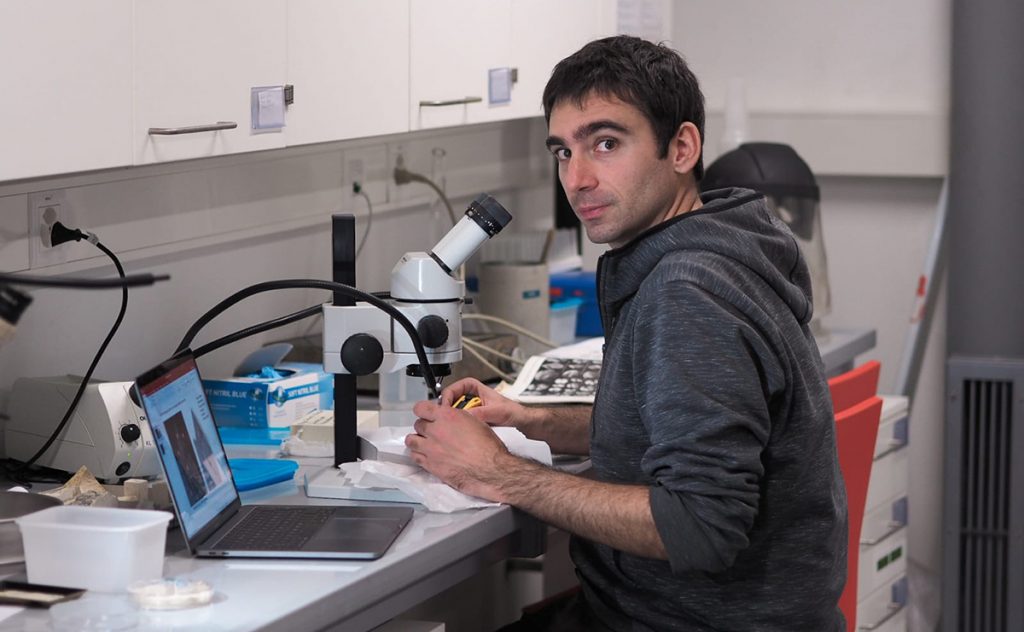Cette publication est également disponible en :
Français

Pierre Gueriau has started his one-year SPARK project last December. His objective is to identify remains of ancient biomolecules in enigmatic fossil animals. If successful, the project will permit to classify these singular organisms and better understand the evolution of life on our planet. Dr. Gueriau shares his enthusiasm and experience in writing this new type of somewhat unusual project.
Spark focuses on unconventional projects. How is it different from a conventional research project?
The idea I have in mind for this project was born out of the very recent advent of new methodologies that offer unexpected perspectives in this field. The project is audacious, especially from a methodological point of view. Such analysis, which is in full expansion but also still in development, is very constraining in terms of sample preparation. The heterogeneous and complex « fossil animal » material does not fit at all into the textbook cases…
The potential impact of the results is another important criterion for Spark. What is the main impact of your project?
If successful, this project could represent the first stone of a new paradigm in Paleontology. An innovative alternative to DNA that is not preserved beyond a million years, especially in the early stages of animal life. We are still a long way from this, and in the short term this project will, for sure, provide unprecedented scientific data on the chemistry of emblematic early animal fossils that populated our planet.
Was anonymizing the research plan difficult? What difference does this make in writing compared to a traditional research call?
Anonymization had initially worried me a lot, mainly because there is no mention of the identity of the project’s reviewers: internal commission or external experts? The « world is sometimes small » in disciplines involving the use of fresh methods. But in the end, because of its audacious side, which must be put into context (clearly beyond the work of the applicants alone), and because of its five-page limit, this type of project is easily written in the 3rd person. On the other hand, when in some projects there is a tendency to incorporate as much of one’s own work as possible in order to highlight one’s contribution, in the case of Spark there is another document specifically aimed at justifying the applicants’ ability to carry out the project. In addition, and this should be kept in mind when writing, Spark wishes to promote the idea more than the applicants’ CV.
Why is this project important to you?
Quite frankly, this project means a lot to me. It is the first funding of this magnitude (with a salary) that I have obtained on my own behalf. And from a scientific point of view, it is the first project that (finally 5 years after my PhD!) unifies the different aspects of my thesis, which became serendipitously very bipartite after only a few months… This important step, taken during the writing of this a priori « small » project (since only for one year), allows me today to draw the outlines of my research project in the long term.
Informations
Leave a Reply